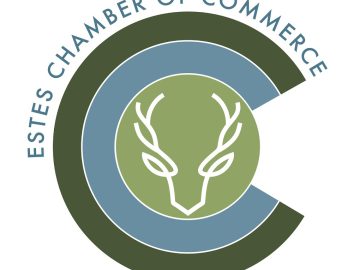Accidental entrepreneur Tayler Cusick Hollman, co-founder of marketing platform Enji, has some marketing advice for small businesses. “Create a marketing routine,” Hollman says. “It’s the thing that I have practiced forever, and I realized that that practice is the reason why everyone asks: ‘How do you do all the things all the time?’”
While a lot of startups are based on a founder problem, Enji “fundamentally is not,” Hollman says. “I understood the marketing machine that I needed to build because Enji is really [answering]: ‘What did my clients need?’ Their problems have been at the forefront from day one.”
AM Best financial strength rating
A- (Excellent)
Online certificates of insurance
Yes
Online quotes available
Yes
On Next’s website
Her journey to understanding what small businesses need was unanticipated; Hollman didn’t plan on being an entrepreneur. She grew up expecting to have a more traditional job like her parents (her mom is a retired NICU nurse, her dad a retired high school math teacher), but it didn’t pan out that way.
“I’m a terrible corporate employee,” Hollman says with a laugh.
After giving it the old college try, in 2015 Hollman linked up with some local businesses in San Diego that needed help with “stuff” and ended up starting a consulting business.
The “stuff” ended up being a lot of PR work, social media management and general marketing assistance. Hollman’s work was so good that she built a client base through word of mouth and spent the next nine years helping small-business owners with their marketing.
It was during the pandemic that Hollman’s husband, an engineer, decided to build the “guts” of a SaaS platform (Software as a Service; you can generally think of this as the cloud-/web-based software you use to get work done or keep things organized), sparking a brainstorm that ended with an exciting idea: “What if we turned me as a marketing consultant into software for people who have to do their own marketing?”
They spent the next two years developing Enji, marketing software built for small businesses that struggle with (1) knowing what it is they need to do, (2) building a consistent marketing routine and (3) knowing what’s working so they can get better at it over time.
 Examples of Enji, marketing software for small businesses, in action
Examples of Enji, marketing software for small businesses, in action
6 questions with Tayler Cusick Hollman: The entrepreneur changing the marketing game for small businesses
Marketing is a problem for many small businesses. A recent Constant Contact study finds that 73% of small-business owners and operators lack confidence in their marketing strategy’s effectiveness and over half (56%) spend less than one hour each day on marketing. And while another study (this time from QuickBooks) finds that 55% of a small business’s revenue (on average) comes directly from its local community, word of mouth can be fickle — and 45% of your revenue has to come from somewhere else.
So what practical advice does an accidental-turned-serial entrepreneur and SaaS founder have to share? We caught up with Hollman to find out.
What’s something you learned within your first few months of business that you still apply today?
“At some point in my life, someone told me: ‘Priority is not a word that’s ever supposed to be anything other than singular.’ Priorities is not a thing,” Hollman says. “When you’re building any sort of business from the ground up, everything is a priority. But as a human, you can really only have one priority.”
She’s trying to latch on to this truth, despite how starting a business “feel[s] like your hair is on fire every day.”
Entrepreneurs are familiar with wearing every hat. Truist’s annual survey of small businesses finds that most small-business owners can’t prioritize business planning because they have to focus on managing short-term challenges; only 35% of surveyed businesses have a formal growth plan in place, and an even smaller subset (32% of that 35%) have shared that plan with a business advisor of any kind.
To avoid finding yourself among this group, Hollman recommends concentrating your energy. “A huge lesson I learned out of the gate is if I don’t stay focused and I don’t go deep on something, then we’re just going to be skimming the surface in a bunch of places and nothing is going to be impactful enough to move the needle.”
What would you stop your past self from doing when it comes to your business, either at all or too soon?
“Advertising,” Hollman says emphatically. While most people think that advertising is the magic bullet that will bring customers flooding in, as part of her marketing advice for small businesses, Hollman cautions against this belief. “Advertising is a hugely complicated thing to get right, and there are 17 moving parts to it. If you don’t nail each one, you’re just burning money.”
Hollman regrets going against her instincts in this area. While she focused on building Enji’s own marketing machine, she gave the OK for her co-founders/business partners to handle advertising, “even though I had major reservations about it from the start. This is one of those things where it’s a reminder to trust your experience and your expertise and what you know.”
It goes beyond delegating to the harder step of actively stopping yourself — and your business — from doing something that most people think is a good or even necessary step when it comes to market. And Hollman’s own asterisk to all of this?
“One of my co-founders is my spouse, [which means] balancing how hard I push back on certain things because I don’t want conversations to go from chill discussions to explosive debates about why our business is doing something,” Hollman says. “But current me looks back and thinks, ‘That’s something you should have dug your heels in over a little bit more, because now we know we should have dialed that one back and focused on other things to start.’”
 Product planning for Enji pre-launch (left) and Hollman with a cake celebrating Enji’s first anniversary (right)
Product planning for Enji pre-launch (left) and Hollman with a cake celebrating Enji’s first anniversary (right)
What are the practical, day-to-day challenges of owning and operating a growing business that people don’t see (or talk about)?
Hollman emphasizes that small-business owners shouldn’t (and can’t) just do what they want to do; they have to do what they know is best for their UX, for their target demographic or type of customer/user.
“You can’t just wake up every day and think, ‘I’m going to build the best . ’ That would be simple! What you have to do is wake up every day and think, ‘How do I build the best product possible for the people who are going to [understand] it the quickest and are also going to buy it?’”
Asking that deeper question fundamentally changes everything, Hollman says, “because it really restricts what the world of possibilities is for you. And it ties back to that priority thing. But if you don’t do that, then you fall prey [to the trap of] trying to be everything for everyone all at once, which is totally not helpful at all.”
Maintaining focus also keeps your mission, whatever that may be, front and center.
For Hollman and Enji, it’s making marketing accessible for small businesses and providing a supportive community to make sure that marketing works. “There’s kind of a justice piece to this — equality and the [ability to access] the tools that people need to succeed and actually have a shot at making it. That’s something I’m extremely passionate about,” Hollman says.
“The reason we’re all getting up and doing this hard work is to actually make a difference for the people who have gone all in on their businesses; they need their business to work because it’s what puts food on the table for themselves and their children. So, we’re not building marketing software for enterprise-level companies who want to make hundreds of millions of dollars; that’s someone else’s thing.”
Hollman doesn’t leave it at simply providing software. “One of the perks of subscribing to Enji is you get invited to monthly group coaching calls where we check in with each other, celebrate what wins people are having, and I always ask if anyone has any marketing emergencies that they need the hivemind to come together and solve,” Hollman says. “We’re building an actual community where people can come and be supported by real humans who have expertise in the area that they’re really struggling with.”
Related: Explore CNN Underscored Money’s picks for the best conference call services
On the topic of tools, which ones are essential for your business? And what’s your single favorite, most useful workplace tool?
“We really rely on a lot of Google products — Gmail, Google Docs, Google Sheets, Google Slides. We’re Googlers at our core,” Hollman says as she clicks through her open tabs. “Slack, which has become almost ubiquitous with team communication; we’re very thankful for that tool! Then, we use Intercom to make sure that our customers are supported at every point. We’ve built out our knowledge base there; it’s our customers’ point of access to us when they have questions.”
Enji uses Stripe for payment processing and opted for Jira as its project management and development tracking tool. And what does a marketing software company use for its email marketing?
“We’re MailChimp users for email marketing, which is great. MailChimp as a company is pretty focused on supporting small businesses, though I do have thoughts about how they could do a better job at simplifying things,” Hollman says. “And the other [tabs and apps] that live perpetually open for me are Instagram and YouTube.”
What’s one thing every small-business owner or startup should be doing right now?
As a serial entrepreneur maintaining and marketing three brands, Hollman says she can “show up in all of the places all of the time” because of her marketing routine. Her passion for marketing routines is core to Enji’s very existence and her primary advice for small-business owners.
A frequent refrain among Enji’s clients is that they struggle with consistent marketing, which Hollman says is because they “market by accident” rather than intentionally. She wants to help business owners create a routine that matches their pace instead.
Whether your pace is being able to dedicate an hour per week or an hour per day to your marketing, she emphasizes the need to protect that time on your calendar. “Come hell or high water, you are doing your marketing tasks”, Hollman says, “so that your business grows.”
 Hollman representing Enji at the first trade show the startup attended
Hollman representing Enji at the first trade show the startup attended
Where do you picture your business going in the next 5 years?
Everybody who runs a small business is fighting time, and Hollman wants to help them in that fight. “Enji is going to be small-business owners’ virtual marketing assistant,” Hollman says. “Our goal is to follow the 80-20 rule: 80% [of things being] done by someone else is 100% awesome. I know to my core that’s what small-business owners need; they need most of their marketing — the planning, the drafting, putting it on a schedule — to be done for them.”
That’s the big-picture version for Hollman’s startup, but in the near term, they’re working on V2 of the platform itself. “V2 is going to be the first step where after [an Enji user] completes the questionnaire and clicks create my strategy,” Hollman says, “they’ll get a week’s worth of Instagram posts already drafted on their calendar, have three blog posts already sitting there, having this, that and that already populated so that 80% is instantaneously done and they immediately see: ‘OK, I can do this.’”
Hollman reiterated that their team isn’t trying to be all things for all companies. “One of the ways I like to help people understand our big picture vision is that we’re trying to do what Canva did for Adobe products in making it super easy for people to do their own graphic design when they aren’t graphic designers,” Hollman says.
“We are trying to do that for something like HubSpot, so that small-business owners and operators who aren’t marketers have something that really facilitates their marketing in the way that HubSpot or a big Salesforce-esque enterprise-level solution does for the folks [at larger companies].”
Pricing
Starting at $0 + state filing fees
Start an LLC
Create your LLC in minutes

On Zenbusiness’s Website
Northwest Registered Agent
Pricing
Starting at $39 + state filing fees
Start an LLC
Sign up today for hassle-free LLC services

On Northwest Registered Agent’s Website
Pricing
$0 + state fee + up to $50 Amazon gift card
Service Time
Varies by State & Package

On Tailor Brands’ Website



